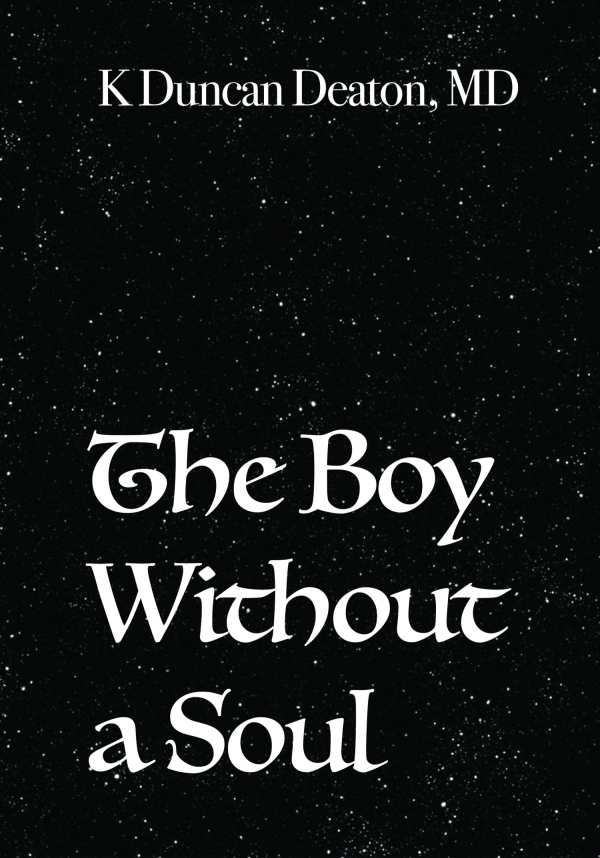
The Boy without a Soul
In the novel The Boy without a Soul, religious fundamentalism leads to drama in a Southern town whose residents obsess over morality and salvation.
K. Duncan Deaton’s novel The Boy without a Soul deals with the intergenerational dramas of fundamentalist families in the deep South.
Tom is an atheist and an oncologist in Mississippi, where the number of fundamentalist Christians in his community sometimes seems to hinder his ability to provide medical services, as his scientific views clash with the religious beliefs of some of his patients. He is skeptical about the benefits of religion, though he’s also open to learning more by engaging with his patients, their families, and other medical practitioners. His story is covered in terms of his hospital work, including prognoses, medical treatments, and the debates that he is pulled into over Christian scriptures.
Tom treats people who struggle with their faith, like Mary, who believes that her cancer is a punishment for being depressed and unmotivated, and who waits too long to seek treatment. Such secondary characters add weight to Tom’s inquiries about religion and his medical practice; however, many of the book’s metaphysical questions are impeded by its dense medical terminology and theological explorations.
But as secondary characters force discussions of personal salvation and the existence of the human soul, Tom recedes in significance. Indeed, one of Tom’s teenage patients, Lilith, almost takes over the novel. She encounters him when she is pregnant and is diagnosed with leukemia, and as she struggles with the decision of whether she should seek an abortion in order to save herself.
As Lilith grows up, she and her children confront personal beliefs and address the religious community they live in. A lengthy dialogue between Tom and Lilith’s son, Joshua, who is concerned about his salvation given his unidentified father, highlights the tension between scientific knowledge and religious faith. However, such interrogations of people’s beliefs are often unresolved; they are shunted aside as new conflicts arise.
Indeed, the novel’s characterizations themselves are less prioritized than its many didactic character exchanges, which seem present most to emphasize controversial topics, including abortion, sexuality, and the soul. But most such topics are handled in an off-puttingly distant manner, especially the dynamics and motivations of women’s sexuality and sexual expressions. Many of the book’s scenes pass without real narrative payoff, and the long book moves slowly toward a finale in which the religion versus science dialogue, which seemed fundamental to its work early on, is swept aside.
In the novel The Boy without a Soul, religious fundamentalism leads to drama in a Southern town whose residents obsess over morality and salvation.
Reviewed by
Ali Ortiz
Disclosure: This article is not an endorsement, but a review. The publisher of this book provided free copies of the book and paid a small fee to have their book reviewed by a professional reviewer. Foreword Reviews and Clarion Reviews make no guarantee that the publisher will receive a positive review. Foreword Magazine, Inc. is disclosing this in accordance with the Federal Trade Commission’s 16 CFR, Part 255.
